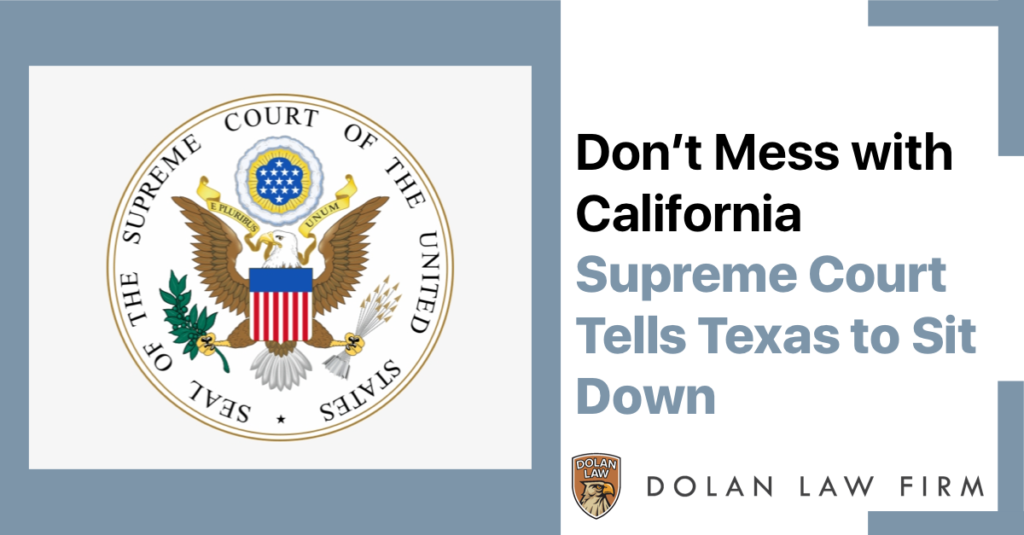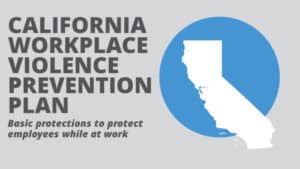Written By Christopher B. Dolan and Jeremy M. Jessup
Jordan from Emeryville wrote in to ask: I recently read a tweet by the Human Rights Campaign that basically said there were more than 250 anti-LGBTQ+ bills moving through legislation nationwide. And that over 125 of those bills were targeting the transgender community and that eight could become law at any moment. As sad as this is, I was hoping there were some bright spots out there, are there?
Dear H. Jordan: Unfortunately, as Pride month approaches, several states have introduced legislation related to LGBTQ+ discrimination. Some legislation will try to remove anti-discrimination laws that LGBTQ+ people really need, while others will single out and target LGBTQ+ people for unfair and unequal treatment. The burning question is what can be done to try and stop, or at the very least, limit the effects of these discriminatory laws that have been promoted under the guise of “religious liberty.”
Believe it or not, the State of California has crossed state lines in an attempt to curtail such legislation, by barring state-funded travel to states deemed to be attempting to limit the rights of the LGBTQ+ community. The measure (which has now expanded to 12 states) prevents California agencies, public universities and boards from funding work-related trips to Texas (and now other states) who have laws that are deemed discriminatory. This measure was enacted after the Texas Legislature moved to allow foster care agencies to use religious liberties as a reason to deny same-sex couples the right to foster children. At the time, California Attorney General Xavier Becerra said the law, “allows foster care agencies to discriminate against children in foster care and potentially disqualify LGBT families from the state’s foster and adoption system,” and that, “[d]iscriminatory laws in any part of our country send all of us several steps back. That’s why when California said we would not tolerate discrimination against LGBTQ members of our community, we meant it.”
In response, Texas Attorney General Ken Paxton sued the State of California in 2017 claiming that the measure violated the U.S. Constitution’s commerce clause by discriminating against interstate commerce and called the California law an effort, “to punish Texans for respecting the right of conscience for foster care and adoption providers.” According to a brief filed, “California’s travel ban is an affront to the sovereignty of Texas — as well as the ten other States that California has blacklisted.” The brief also argued that the California ban shows “religious animus” toward Texas.
The lawsuit, which was filed directly at the U.S. Supreme Court level (which is allowed when there are disputes between states) was supported by 19 states, who wrote briefs in support of the stance taken by Texas. Despite the prior administration’s urging to have this case heard, in a 7-2 decision and without explanation, the U.S. Supreme Court turned the case away and denied the state of Texas’ request to file a complaint. This means that California may continue with their ban. This refusal to accept the complaint is significant, given that the potential conflict between gay rights and religious freedom has become a central theme at the nation’s highest court, which now has an ostensible 6-3 conservative majority.
However, the State of California is not the only one fighting back against anti-LGBTQ+ legislation; according to the Texas Tribune, business leaders in Texas have cautioned the State that these laws could be harmful to both Texans and to the state’s economy, which is still recovering from the recession that accompanied the pandemic. Recently, members of the business group Texas Competes (made up of over 1,400 Texas employers, business and tourism groups and backed by big tech companies like Hewlett Packard) identified numerous bills that they say will infringe on LGBTQ+’s rights, “tarnish Texas’s welcoming brand,” and hurt local businesses including the tourist industry.
“Businesses big and small and economies thrive on certainty,” says Jessica Shortall, the managing director of Texas Competes. “What we’re faced with again this year is the uncertainty of whether discriminatory policies will rear their heads and cause all of the problems you’ve heard from our business speakers.”
According to the Human Rights Campaign, more than 90 major U.S. corporations have spoken out in opposition to anti-transgender legislation being proposed in states across the country. Some of the more concerning bills deal with both youth and collegiate sports. One bill, which has already passed at one level, would prevent public school athletes from participating in school sports unless their team designation was inline with their sex assigned at birth. Texas is also attempting to pass a similar mandate for colleges and universities.
However, the NCAA (National Collegiate Athletic Association) Board of Governors released a public letter stating that it, “firmly and unequivocally supports the opportunity for transgender student-athletes to compete in college sports.” Moreover, “When determining where championships are held, NCAA policy directs that only locations where hosts can commit to providing an environment that is safe, healthy and free of discrimination should be selected.” Currently, Texas is scheduled to host several events, including the 2023 Women’s Final Four in Dallas and the 2024 College Football Playoff National Championship game set for Houston. If the NCAA were to deem Texas one of those states, Texas would stand to lose out on nearly $1 billion dollars in economic benefits. This warning by the NCAA puts not just Texas, but another 29 states on notice that if they elect to move forward with discriminatory legislation, the NCAA will act.
The steps being taken are not perfect and will not stop all of the anti-transgender legislation in the works (Tennessee Governor Lee has signed similar bills, one as recently as last month, which Nashville’s top prosecutor said recently he will not enforce.) As long as there are people and entities willing to stand up, there will always be bright spots. It should be noted that as this article was waiting to be published, Democrats in the Texas legislature have killed a bill that would have required transgender athletes to compete on sports teams corresponding to their gender assigned at birth.










